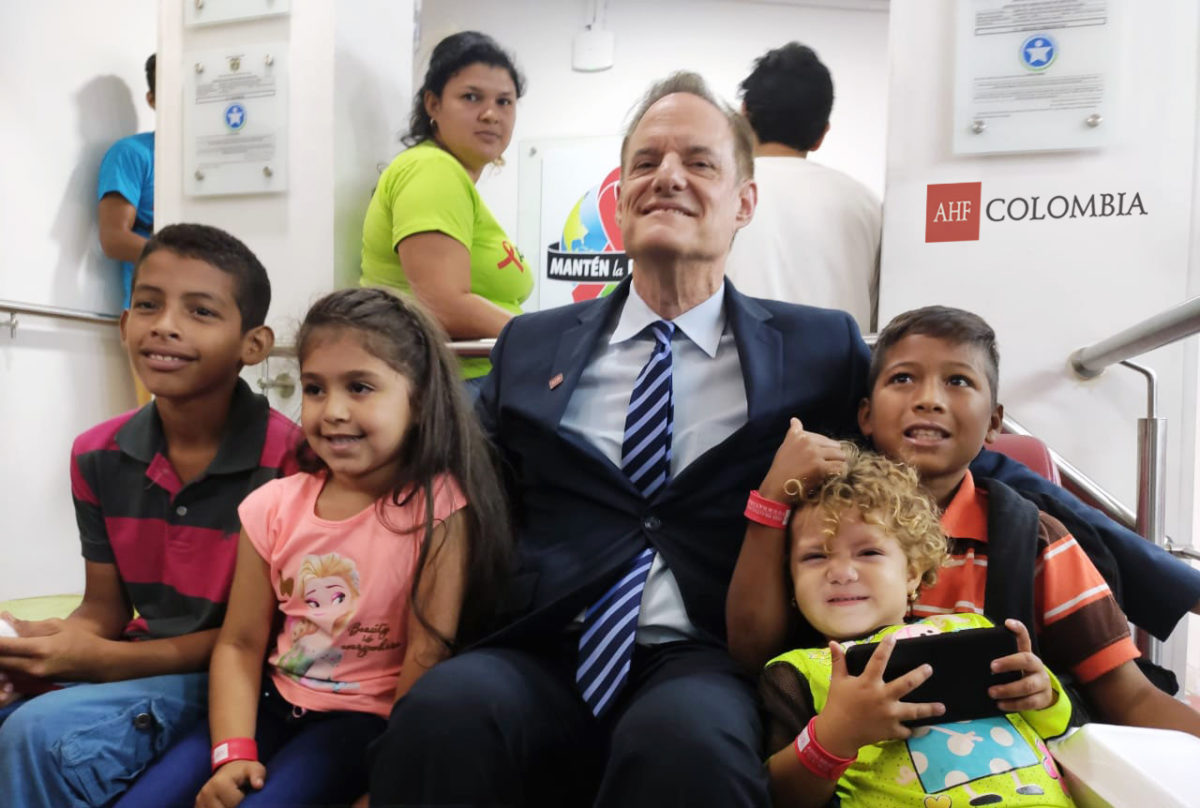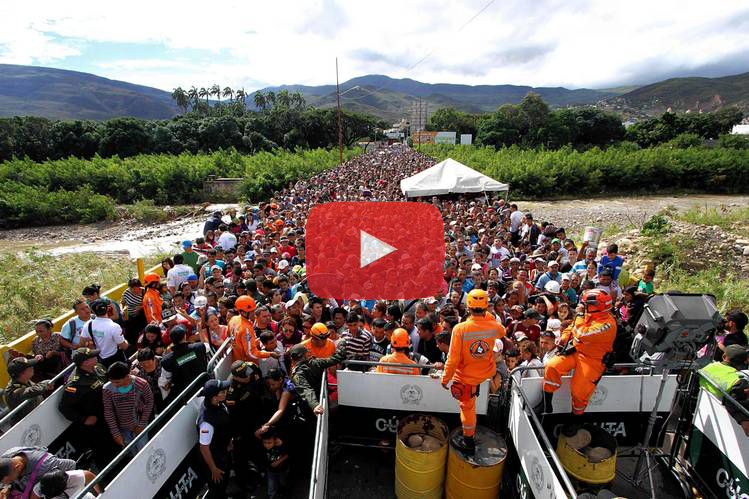Jesús’s only chance for survival was to flee the devastating humanitarian crisis in Venezuela and seek help in Colombia. He says he is alive and able to endure thanks to the lifesaving antiretroviral HIV treatment he receives in the border city of Cúcuta, Colombia.
Watch the short video here to see how Venezuelans are fleeing their home country and overcoming personal struggles for a chance at a better life with the help of the AHF Cúcuta clinic.
“For me, Venezuela is my country. It is the best, most beautiful thing—but I left because of the crisis there. There are no medicines, no jobs,” said Jesús, who is 36 years-old. “There’s a lot of insecurity. It’s not easy when you leave your country in search of a better quality of life.”
The collapse of the Venezuelan healthcare system prompted AHF to open a clinic in Cúcuta in September 2018, on a critical border crossing with Venezuela which is traversed daily by thousands of refugees. Without reliable access to antiretroviral therapy, Venezuelans living with HIV constantly run the risk of dying or developing drug resistance due to treatment interruptions in their home country.
AHF President Michael Weinstein recently visited the Cúcuta clinic as a sign of AHF’s strong, ongoing commitment and appreciation for the lifesaving work carried out by clinic staff. On the global stage, AHF has continuously advocated to bring attention to the crisis in Venezuela and pushing donors to do more to save lives.
In an unprecedented and welcomed development, the Global Fund recently announced that it will be allocating nearly $26 million over the next three years to Venezuela to fight what has become the worst malaria epidemic in the entire region, along with continuing to support the HIV and tuberculosis responses in the country.
“Having just experienced one of the most awful human tragedies I have ever seen, I must bear witness to a true humanitarian effort of the highest order,” said Weinstein. “Help from the Global Fund cannot come soon enough – it follows in the wake of relentless advocacy and we applaud the Fund’s leadership for doing the right thing. But above all, this is about saving and improving lives—and what can be more rewarding than that?”
For more than five years, Venezuela’s economy has been in decline due to political crisis, leaving millions of its citizens scrambling to obtain even the most basic necessities for survival. That unfortunately includes a scarcity of vital medicines, and so far, there are few signs that the crisis will end in the near future.
“We will keep up our work so that this clinic in Cúcuta can continue its lifesaving work,” added Weinstein. “The world must do its part as well, to help people caught up in this unimaginable tragedy through no fault of their own.”
Since opening, the AHF Colombia Cúcuta clinic has tested more than 7,250 people for HIV, with 60% of the tests supporting the Venezuelan population. The clinic currently provides care to 892 registered patients—856 of whom receive antiretroviral therapy and nutritional support directly from the facility.



